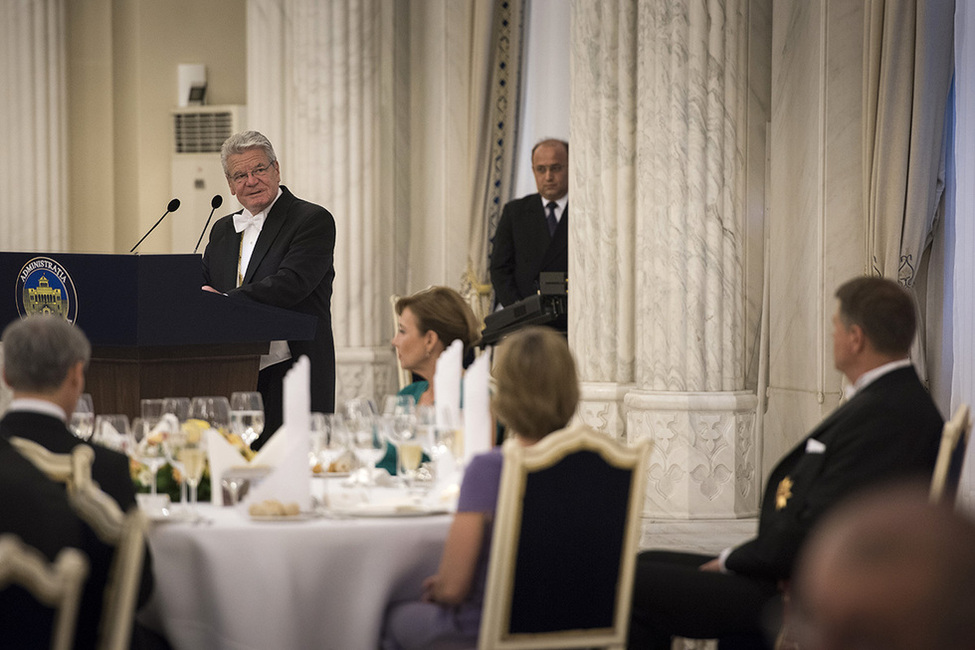A year has already passed, Mr President, since one of your first trips abroad saw you visit us in Germany, in Berlin. One year is normally a short time in international affairs. But the past year was in fact especially eventful for all of us in Europe.
I do not really need to go into any great detail about this here, but both the intensive negotiations with Greece and the flow of refugees from the Middle East and North Africa, to cite just two examples, have put the European Union to the test – and we know that these challenges will not be diminished in the future.
I am therefore delighted that Romanian-German relations are so vibrant and sound, and so reliable and dynamic, in these eventful times. This is true of both our bilateral relationship and of our cooperation in the international organisations of which our countries are members. Romania is playing a constructive role as a valuable partner in both the European Union and NATO.
The cultural relations between our countries are based on long-standing and solid foundations from which they can be developed. The Romanian-German Forum, which was founded at the beginning of this year and which is supported by leading figures from both of our countries, can play a vital role in this regard. I believe that something very important is emerging here – especially owing to the involvement of state and non state actors – and I look forward to the tangible outcome arising from future forums.
The German minority in Romania, even though it is now not strong in number, is also highly significant and forms a human bond between our nations – just like the many Romanian citizens who have become integrated into the German labour market and German universities. Two German Nobel Prize winners even attended one and the same school in Timișoara – Herta Müller and Stefan Hell. Stefan Hell is accompanying me on this trip. Thank you for being here. Successful artists, including Peter Maffay, also have their roots in Romania. How nice to have you here.
The economy is one of the cornerstones of our relations. Germany is Romania’s most important trading partner. Our country has made many direct investments here – this is not surprising given that more than 8000 companies with stakes held by German investors are doing business in Romania. The over 500 members of the German-Romanian Chamber of Industry and Commerce offer jobs for some 300,000 people in Romania. German companies therefore have a vested interest in doing their utmost to support efforts to expand the dual system of vocational training.
The economy is certainly not everything. However, without a flourishing economy, added value, growth and production, there would be nothing to earn and nothing to distribute. It is, whether we like it or not, also the promise of increasing prosperity for all which, in the perception of many, helps to increase a nation’s acceptance of modern democracy and the rule of law. Not only are effective measures to fight corruption an important precondition for economic growth, for growth from which people palpably benefit, but a strong state with institutions loyal to the constitution is essential for fighting corruption. I therefore have the greatest respect for Romania’s efforts in this regard.
It is only when the present and future appear to be promising to a country’s citizens that they are willing to engage in the community. It is helpful in this respect to get to grips with the dark history of Communism and its machinery of repression, but also with the deficits and negative developments of the era of transformation. If this does not happen, then this past will one day appear in a romanticised light. As someone who also experienced the realities of a dictatorship first hand, I am therefore especially pleased to see that Romania is on the right track.
President Johannis, thank you very much once again for inviting me. Thank you for this wonderful atmosphere. I am delighted to be here, and would like to propose a toast to you and to the Romanian-German friendship.


